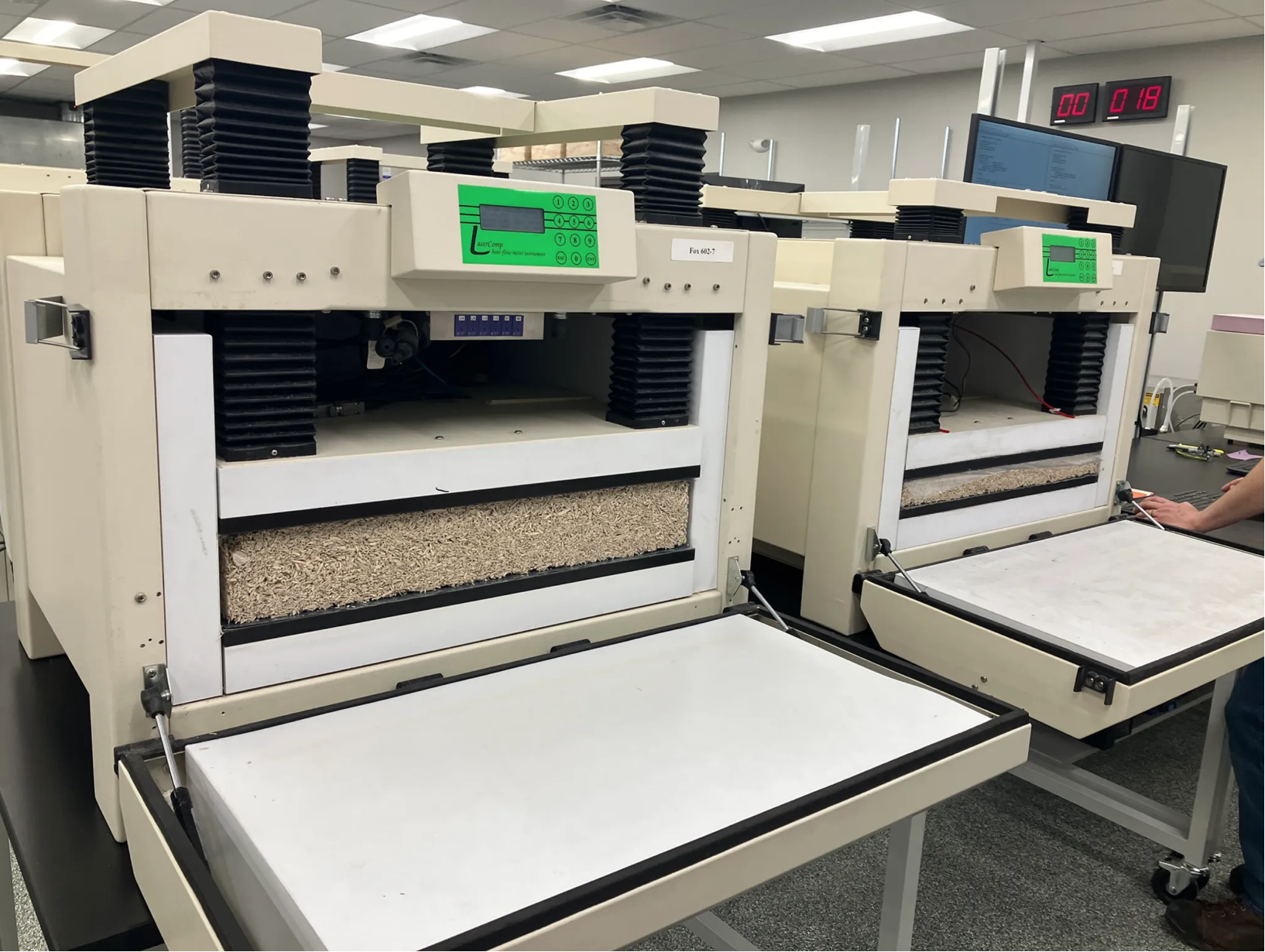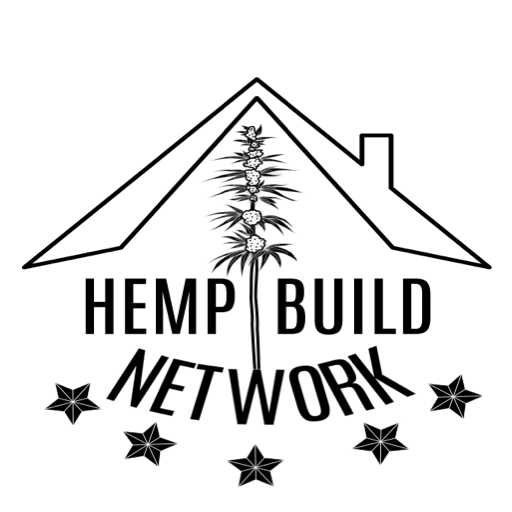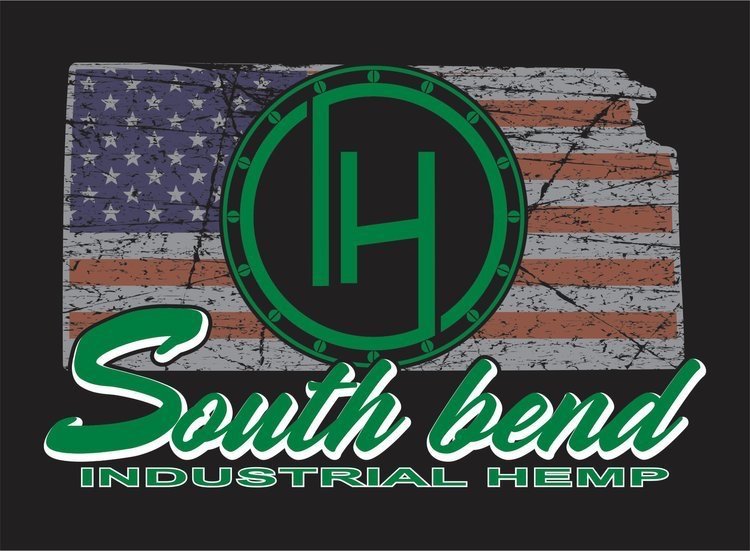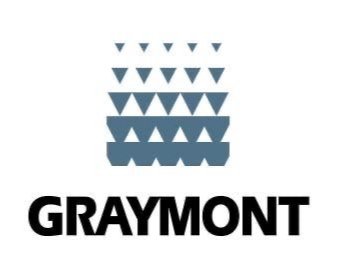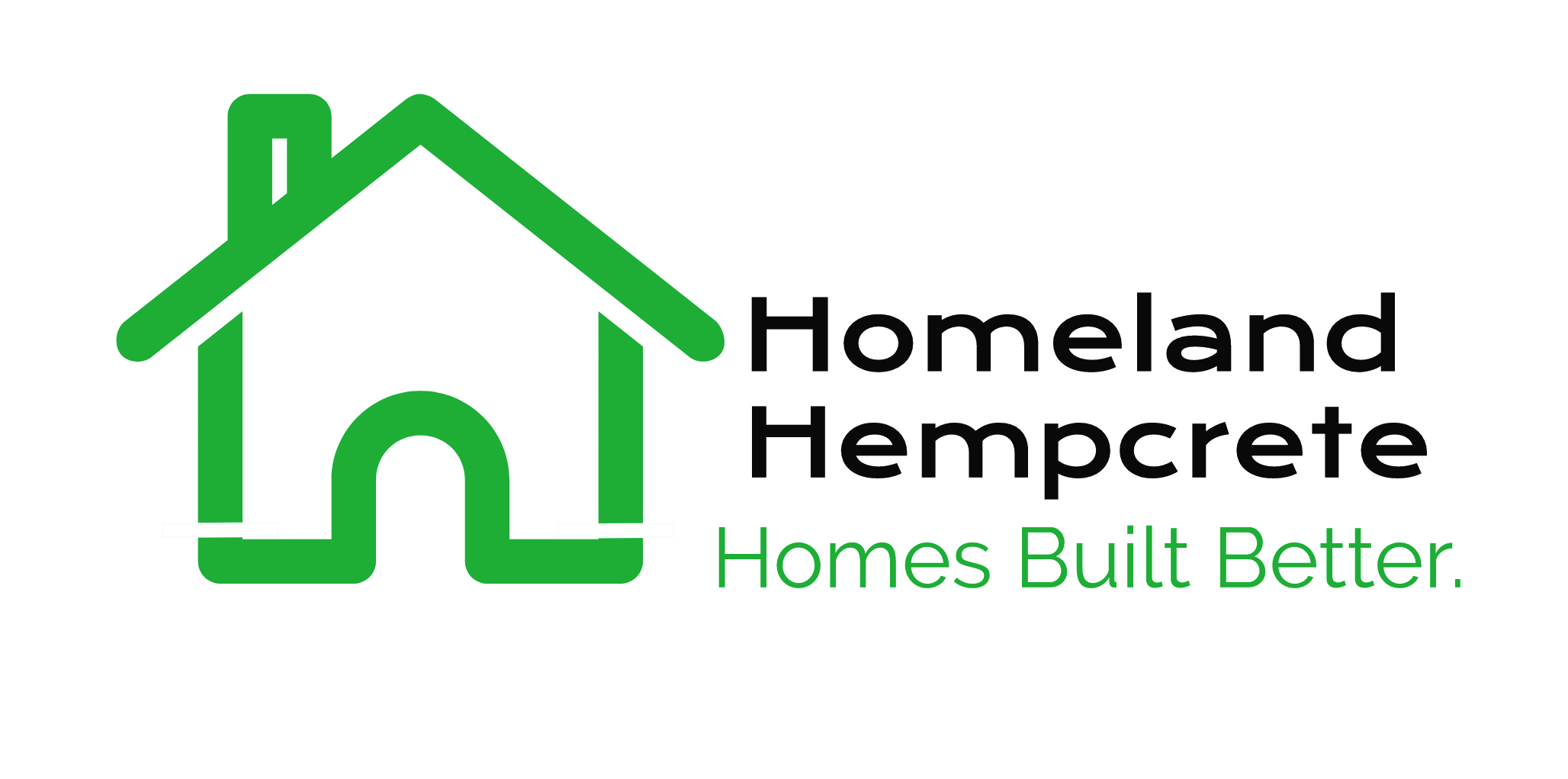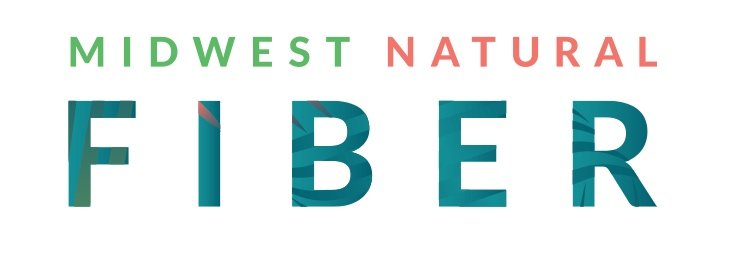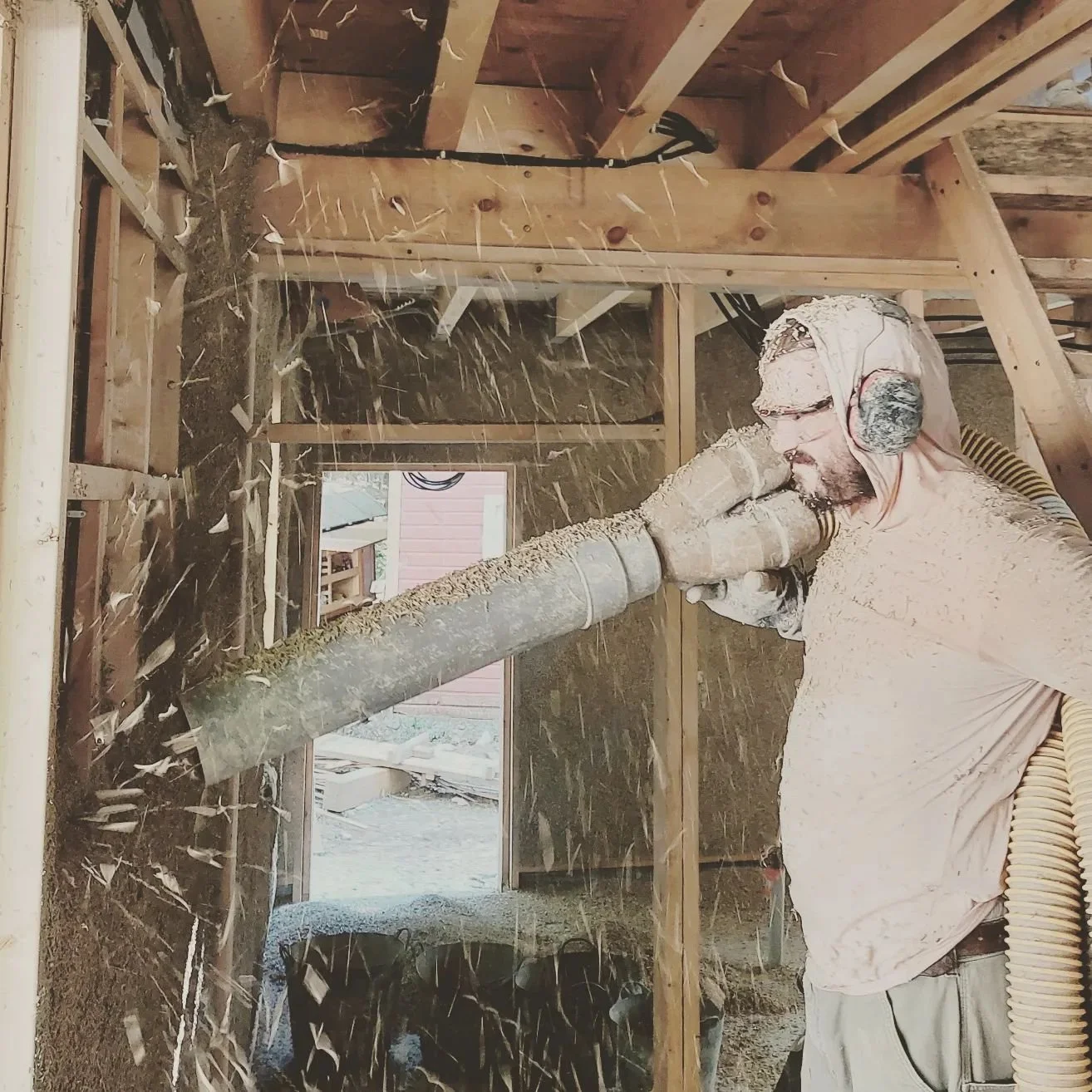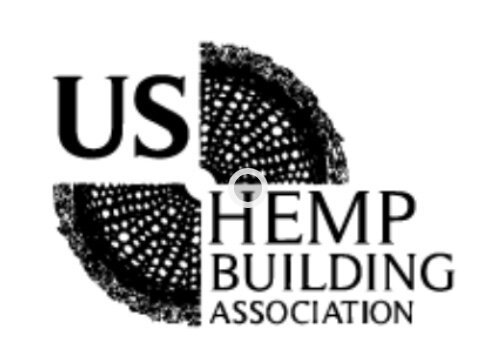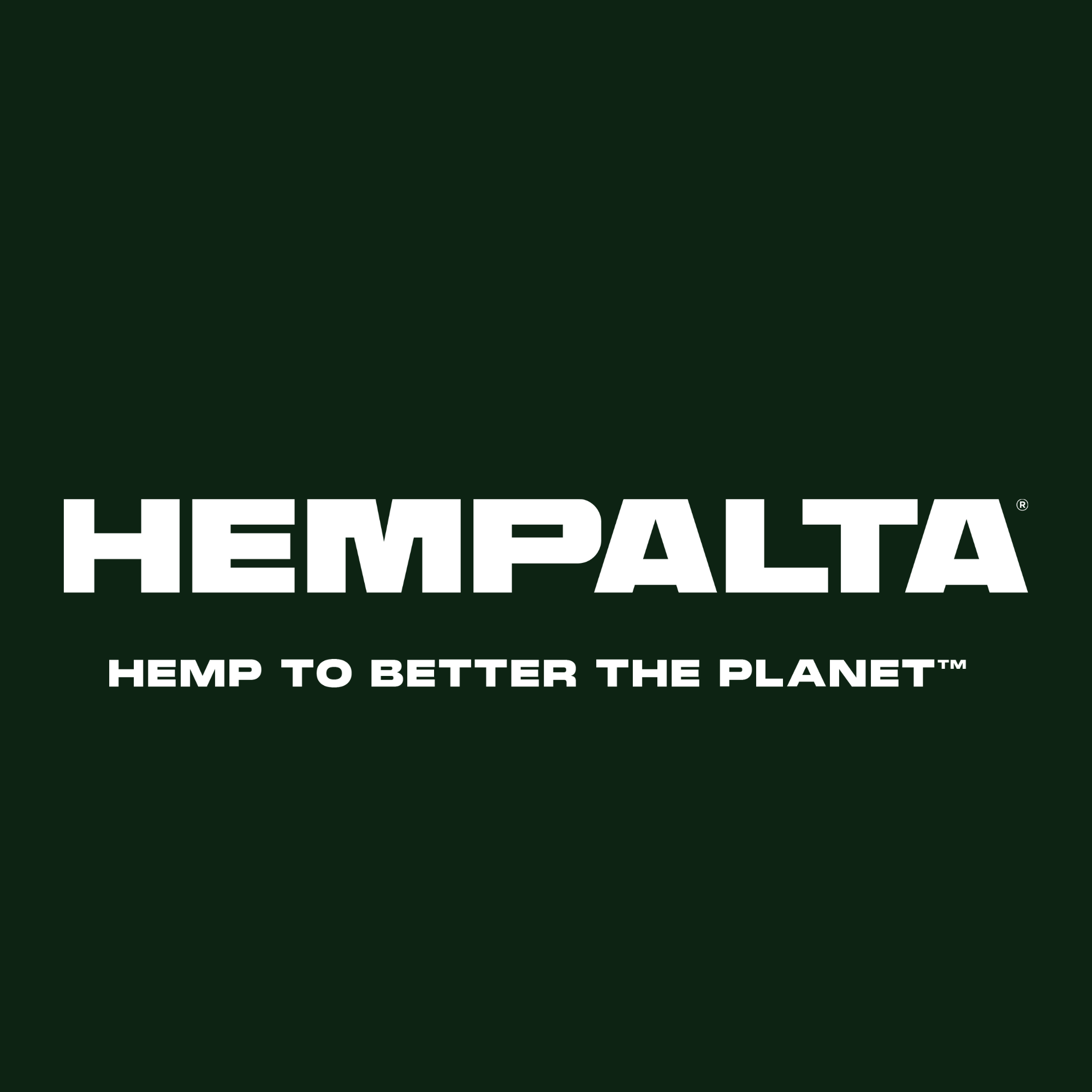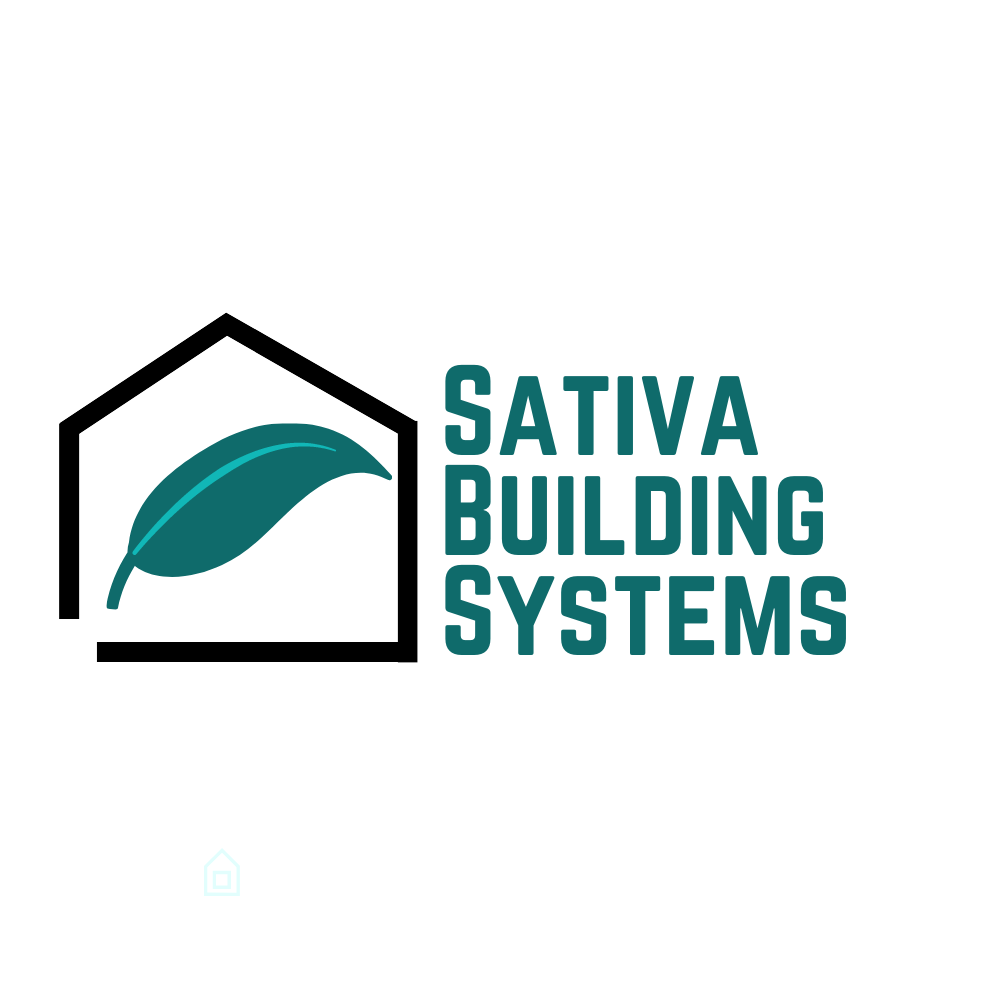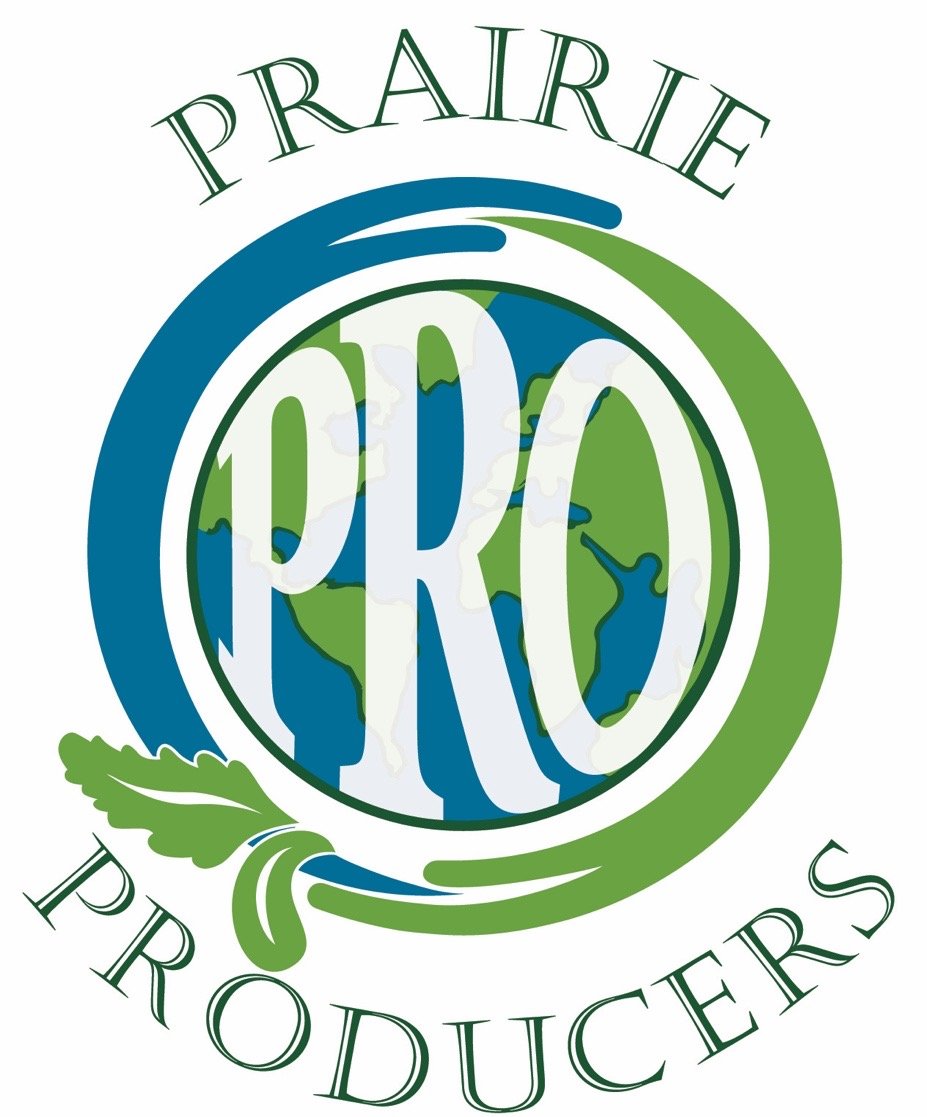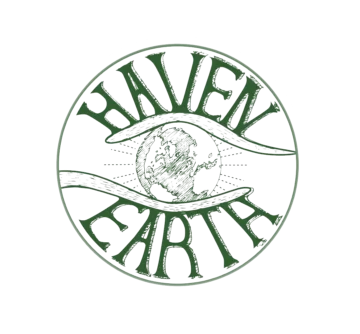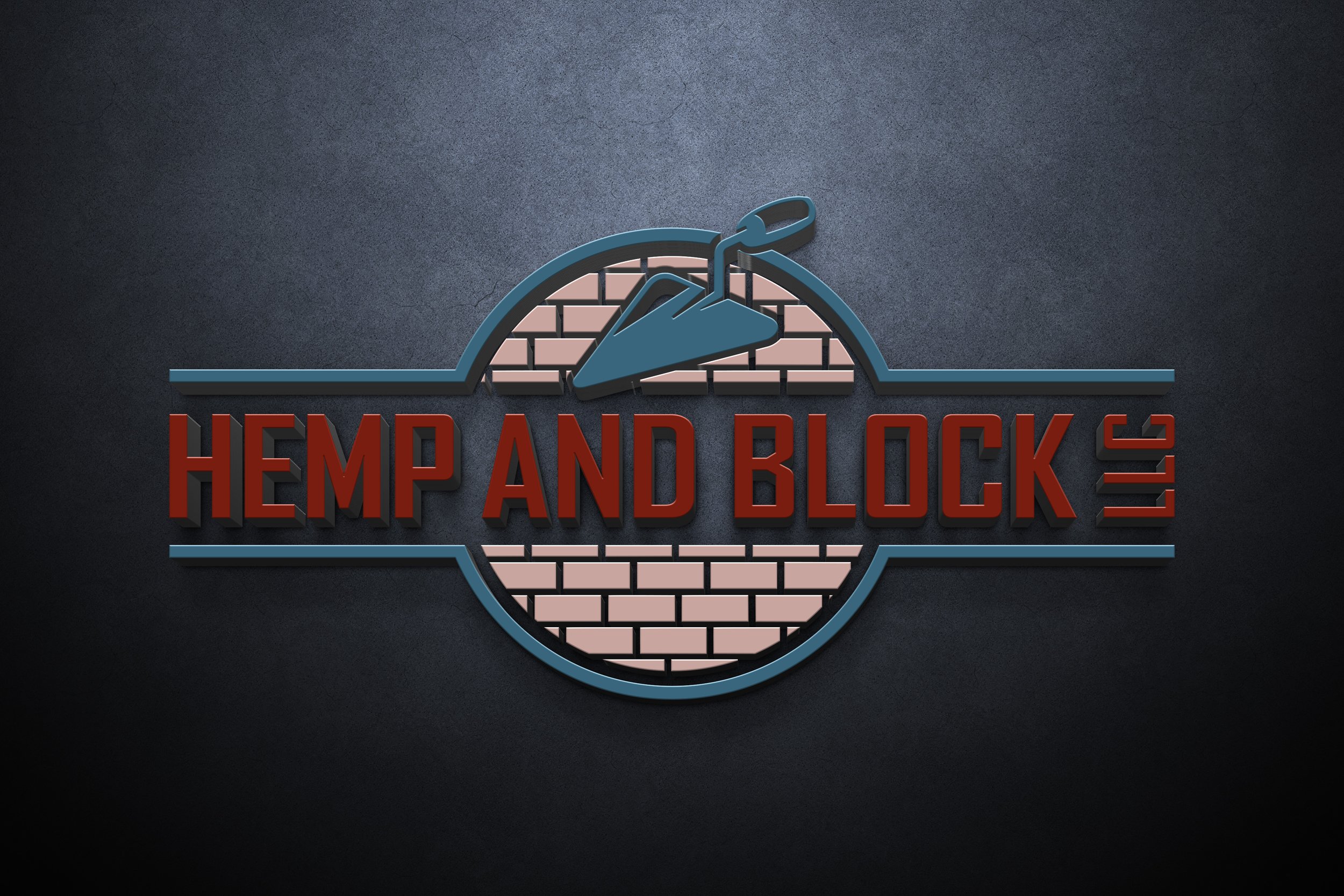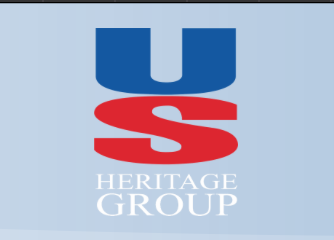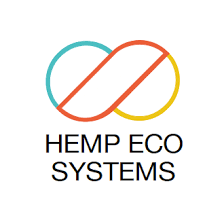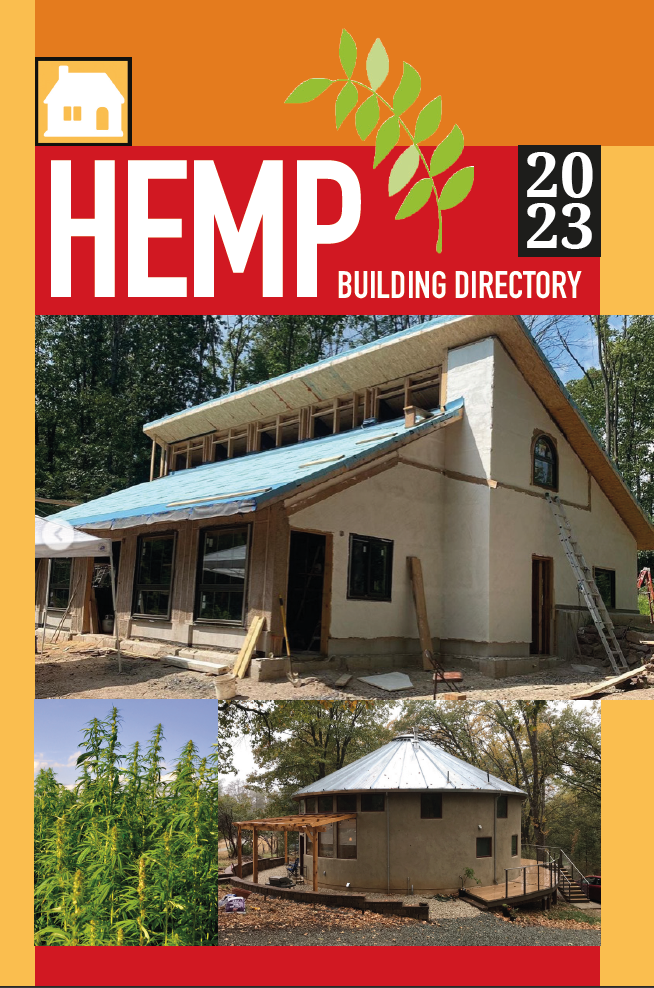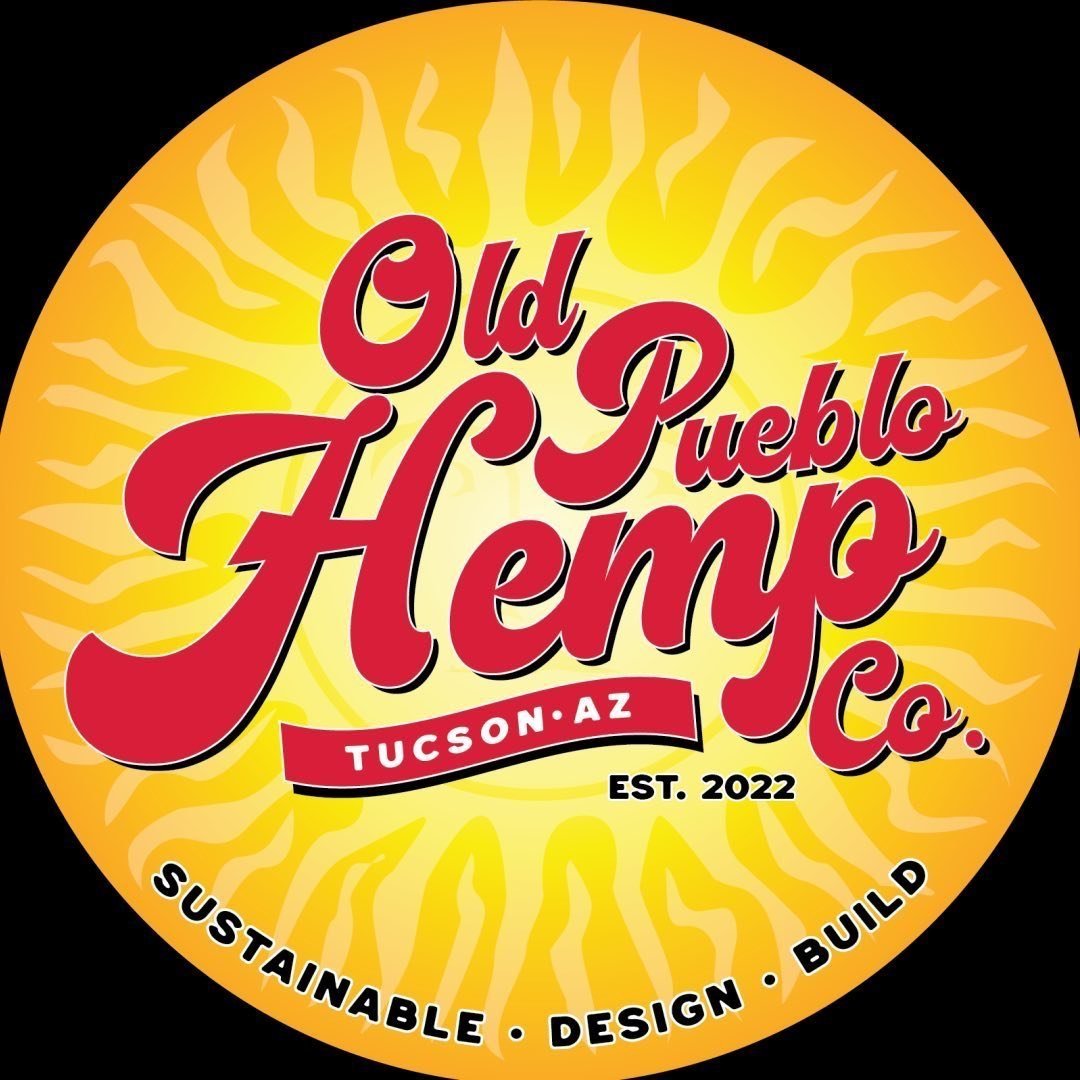Hemp-Lime Passes ASTM R-Value Tests
Hemp-lime ('hempcrete’) slabs are measured for ASTM thermal resistance testing at R & D Services in Watertown, TN. Photo courtesy of Americhanvre Cast Hemp
by Jean Lotus
Hemp-lime insulation has passed US tests for thermal resistance (R-Value), performing the necessary testing required by the Federal Trade Commission to advertise the insulative value of a material.
Hemp-lime (or “hempcrete”) long ago passed insulation testing (U-value) in Europe, but official testing had not been performed in the United States, where industrial hemp for building materials was only approved to grow since the 2018 Farm Bill.
The tests were performed by Pennsylvania-based Americhanvre Cast Hemp, using samples created with the Ereasy Spray Apply system and the proprietary Ereasy binder. Hemp-lime (or “hempcrete”) slabs of 2”, 4” and 6” were tested under the ASTM C-518 R-value testing.
Testing at R & D Services in Watertown, TN, showed hemp-lime to have an R-value of 2.2 per inch.
Subscribe for HempBuild Magazine’s free newsletter
The tests were performed to streamline the hemp-lime building industry in the United States, the company said.
As compared to traditional batt or foam insulation, the R value per inch for hempcrete is lower, Cameron McIntosh, owner of Americhanvre told HempBuildMag in an email.
“However [hemp-lime] has thermal inertia that those materials do not have,” McIntosh said. “In other words, hemp-lime does more than reflect hot and cold energy - it absorbs, maintains and slowly dissipates that energy over a longer period of time, leading to more dynamic performance,” McIntosh said.
Additionally, “When spray applying or casting by hand in situ, hempcrete in a wall assembly can create what we call a monolithic or un-interrupted envelope of insulation around the entire structure,” McIntosh added.
Americhanvre, based in Wescosville, PA, is the US distributor for the Ereasy hemp-lime spray casting system.
Click here to go to our FREE online community.
Cameron McIntosh, founder of Americhanvre Cast Hemp.
The FTC requires that R-values of insulation be disclosed as tested by a range of ASTM tests, including C-518.
“This test is required by the FTC, but not necessarily by the local code office,” McIntosh said.
Rules for Hemp-lime in US building codes under the International Residential Code Index give a general table of thermal performance that is conservative, McIntosh said. “We are now able to prove to local code enforcement that the Ereasy Spray Applied Hempcrete System actually exceeds the standards laid out in the [building codes].”
Jacob Waddell, president of the nonprofit Hemp Building Institute, was hired as a building materials expert to assist Americhanvre with testing.
“The [ASTM] testing confirmed what the European tests had shown and the R-value was on the top end of those values that have been used when designing with hemp-lime for decades,” Waddell told HempBuild Mag in an email.
“These test results are the first example of what should become common in the US hemp-lime industry. As we become more widely used, we will need to follow procedures and rules that match with the expectations of the modern building industry,” he added.
Read more about the ASTM test results HERE.
The Ereasy spray-applied system in use in a hempcrete installation in the United States. Photo courtesy of Ereasy.
Please Support Our Classified Advertisers
(To find out more about advertising CLICK HERE).
Help Wanted:
Publications
Hemp Building Directory 2023 - Guide to the International Hemp Building Industry
Available Now! “Hemp Buildings - 50 International Case Studies” by Steve Allin
Hemp Building Research and Training
Hemp Hurd (shivs)/Hemp Fiber/ Hemp Microfiber
Hemp Building Company: Hempcrete Supplies, Training Programs. Longmont, CO
PROducing Sustainable Fibers for Environmentally Conscious Consumers - Prairie PROducers
Hempcrete installers/Insulation subcontractors
Hempknowlogy: Home of the Hempjet: America’s first hempcrete spraying system. Manchaca, TX
Design and build your Hempcrete home with HempStone LLC complete consultants
Lime Binder
Hemp Batt Insulation/Supplies
Hemp Wall Panel Products
Preorder your hempcrete tiny house from Sativa Building Systems
Panel solutions from Homeland Hempcrete
Hemp Blocks
Professional Associations

